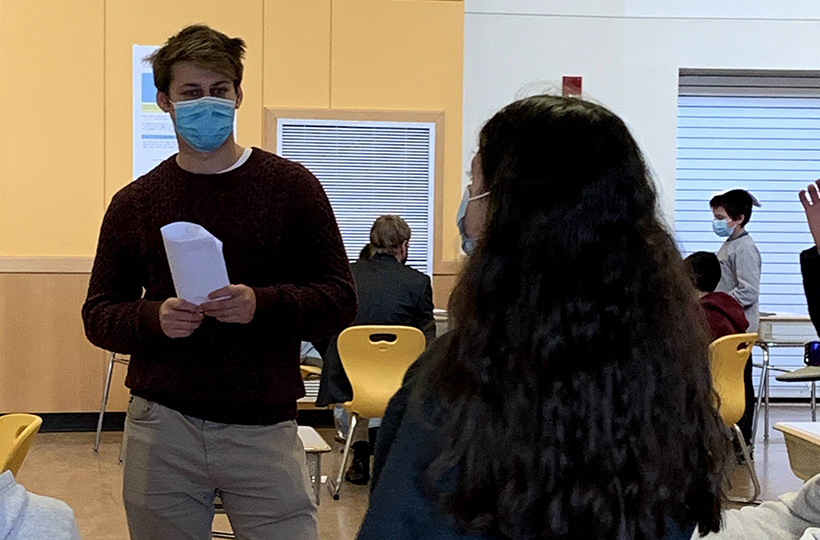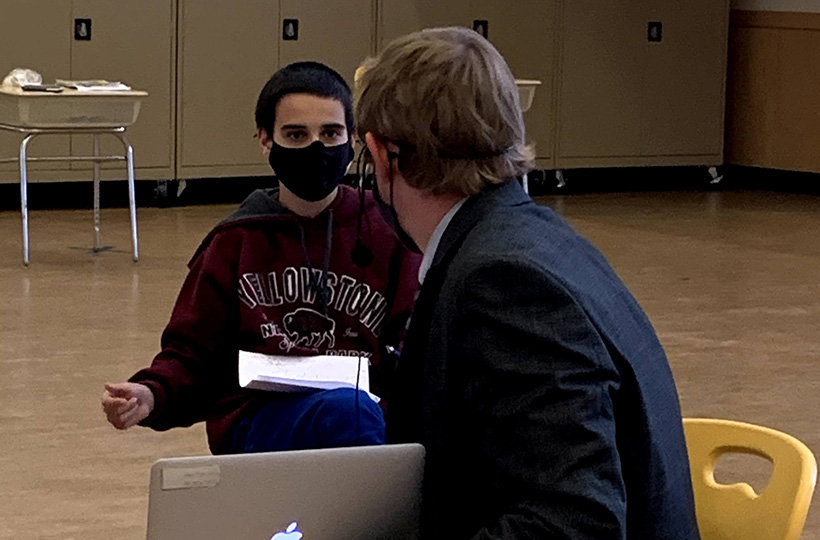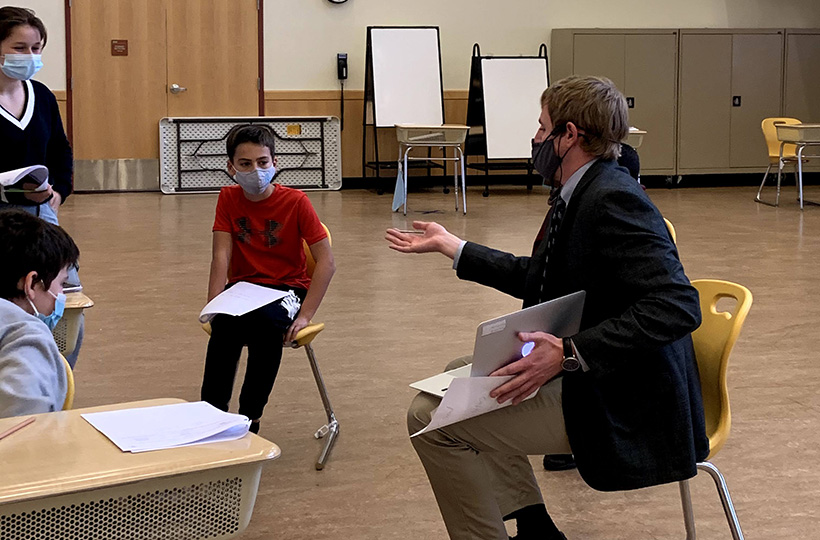The class period started with a statement: COVID – 19 has had a disproportionately negative impact on certain populations.
The next hour was spent answering: How can we as mathematicians make sense of this statement using numerical evidence? What does disproportionality mean? How has COVID-19 impacted Latinx, Black, and white people?
The lesson explored what “certain populations” meant–from socioeconomic groups to racial groups, and what a negative impact would look like–from hospitalization rates to rates of death. The lesson structured a discussion on how, in the United States the data shows that there are disparate outcomes along racial lines; students discussed what those root causes might be.
Co-created by Mathematics Department Chair Brad Meeder and Social Justice Assistant Sherman Goldblum, the lesson tied critical mathematics skills to real-life challenges facing our country. Sherman explained that “disproportionality is a tool that can be used to identify injustice. This lesson was built to make our students better question the world and what they see.”

The plan exemplifies a strength of the Middle School academic program: connecting real-world topics and ideas to classroom learning.
Mr. Meeder shared, “This lesson showed the ability of Rashi students to make a meaningful connection between mathematics and social justice. We discussed how data and statistics tell us what is happening, but it doesn’t necessarily tell us why something is happening. I was inspired by our students’ thoughtfulness and ability to empathize with different groups’ perspectives and life experiences.”

Mr. Meeder and Sherman guided students in using data to show evidence of disproportionate representation through three different methods: using a statistic of one out of every x…, x per one-hundred thousand, or measuring something as a percentage of the overall population.

What does a lesson like this show about Rashi students? Sherman reflected that it “shows how Rashi students’ critical minds connect to their compassionate hearts. It gave students the opportunity to demonstrate their knowledge of current events and creative problem solving. They showed a sense of empathy, speaking about how Covid-19 has affected different communities in different ways.”
Mr. Meeder loved teaching this lesson, saying it allowed him “to see students through a different lens than many of our other classes. To hear them speak so thoughtfully about real societal issues made me proud to be their teacher and excited for their futures as mathematicians and civically engaged citizens.”

